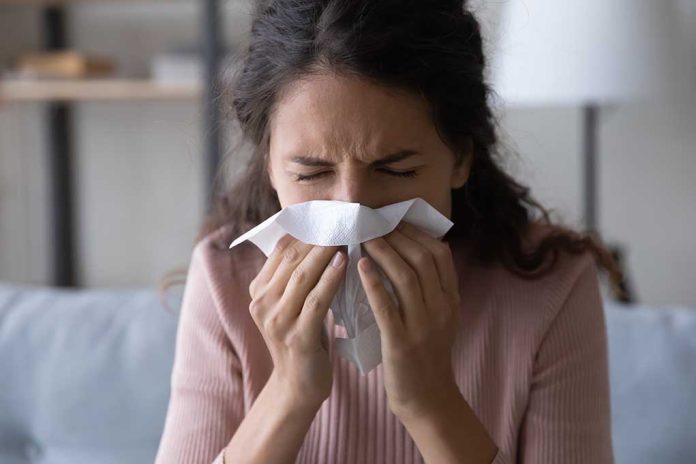
The alarming resurgence of whooping cough in America highlights the urgent need for bolstered vaccination advocacy and reinforced public health policies.
Key Takeaways
- Whooping cough, a contagious respiratory infection, is on the rise in the U.S.
- Vaccine hesitancy and misinformation contribute to increasing cases.
- Health experts emphasize vaccination as the best protection against whooping cough.
- Infants and unvaccinated children are at higher risk for complications.
- Public health policies need strengthening to curb outbreaks.
Understanding Whooping Cough
Whooping cough, or pertussis, is a highly contagious respiratory infection. Characterized by a “whoop” sound after intense coughing fits, it is caused by the Bordetella pertussis bacterium. The disease spreads through droplets from coughs and sneezes and can lead to severe complications, especially in vulnerable populations. Infants, young children, and the elderly are at higher risk, accentuating the need for robust preventive measures.
Recent data indicates a troubling increase in whooping cough cases in the U.S. More than 17,500 cases have been reported in 2024, significantly up from 3,962 cases in 2023. Vermont and New Hampshire have reported a surge in cases, signaling the need for immediate action. Infection rates are inching back to pre-pandemic levels, emphasizing gaps in vaccination coverage.
Vaccine Hesitancy and Public Health
Public health experts note that vaccine hesitancy, exacerbated by misinformation, is a key factor behind the rise in cases. The decline in vaccination rates during and after the COVID-19 pandemic has left many susceptible to vaccine-preventable diseases, including whooping cough. Former FDA commissioner Scott Gottlieb and other health professionals have raised concerns about growing skepticism towards vaccines.
Statistics support these claims, showing a direct correlation between vaccination rates and disease outbreaks. Cuts to public health infrastructure have further compounded the problem, making effective dissemination of accurate vaccine information more challenging.
Whooping cough cases skyrocket across US as measles concerns surge https://t.co/jcz15P9QOz pic.twitter.com/yRLz5myhgd
— The Independent (@Independent) April 15, 2025
Call for Enhanced Public Health Policies
As whooping cough cases alarmingly rise, there is a pressing need for enhanced public health policies. The Centers for Disease Control and Prevention (CDC) recommends DTaP vaccinations for children under seven, and Tdap vaccine boosters for older children, adolescents, and adults. Pregnant women should receive a TDaP booster during each pregnancy to protect newborns.
Proactive measures, such as staying away from known exposures and maintaining proper hygiene, remain vital. Health experts encourage the continuity of historical perspectives on the severity of pertussis and call for reinforced public health campaigns to counter misinformation. With strong advocacy and commitment to vaccination, the trajectory of whooping cough can be effectively managed.
Sources:
- Whooping Cough Cases Increase: Why and What To Do About It | News & Stories | DHMC and Clinics
- Why Are Whooping Cough Cases Rising? What to Know and How to Avoid It | Children’s Hospital of Philadelphia
- “Not Just Measles”: Whooping Cough Cases Are Soaring as Vaccine Rates Decline







